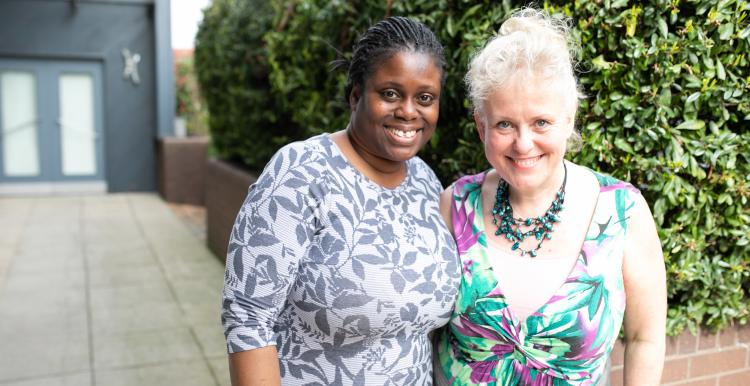Involving more people with learning disabilities in your work

We need to demonstrate diversity and inclusion in all of our work. To understand different approaches, we funded two local Healthwatch to work closely with others across the network, share their model and provide support to help their colleagues replicate or adapt those successful methods.
In this article, we'll tell you about Healthwatch Essex's Learning Disability Ambassador scheme, the 2021 pilot where other local Healthwatch got together to discuss the approach and how you can do the same in your own Healthwatch.
About the Learning Disability Ambassador Scheme
Working with their local hospital, Healthwatch Essex recruited and trained 14 volunteers with learning disabilities to undertake visits to the hospital and identify improvements. This includes reviewing signage, accessible information, and the language used.
Ambassadors also met with Healthwatch Essex staff and the hospital's patient experience manager to discuss issues affecting them and others in their network and attend focus groups and steering group meetings. They contributed to case studies and social media campaigns led by Dan Potts, Healthwatch Essex engagement manager, to showcase the difference they are making.
We spoke to Dan, and he shared his top tips for involving volunteers with learning disabilities.
Map your stakeholders first
These might include charity organisations, hospitals, local councils, health care professionals or other agencies working in a similar field.
Use your stakeholders to help with recruitment
Recruitment is easier once you have a stakeholder map. Make a flyer or leaflet to share virtually and face to face in shops and community settings. During your recruitment, include an informal interview face to face or online to enable you to understand the needs of the individual and what you can do for them during their role.
Keep recruitment simple and accessible
Include an informal interview face to face or online to understand the needs of the individual and what you can do for them during their role. Remember, it is not always about what the volunteer can do to help your organisation but more about how you can add value to their future.
Make sure you have everything you need in Easy Read
Ensuring information is accessible is vital to including disabled people in our work, but it also benefits everyone. You should make sure your crucial volunteer documents are available in Easy Read.
If you want to create Easy Read documents:
-
Limit text – keep it very simple and don’t use any jargon.
-
Use clear images – either illustrations or pictures of real people, objects and places.
-
Do not overthink it – if you are asking for someone’s address, you do not always have to use a postcode symbol.
-
Attend a training course (Healthwatch England provides these) or find a local provider to help you produce Easy Read formats.
Our Easy Read role description, application form, volunteer agreement, declaration of interest and volunteer handbook are all available below as downloads which you are welcome to use.
Work as a team and be patient
Co-production works best when people with lived experience form a working group alongside health and care professionals to influence how services are designed, commissioned and delivered. Make sure you manage your volunteers’ experience. These are huge organisations, and it can take time and a lot of patience to influence and change services.
Get your engagement method right
Remember that all voices should be heard and that each project may need a different approach. It may be a survey, focus group, one-to-one conversations or social media campaign but remember to be flexible in meeting the needs of your volunteers.
Carry out volunteer well-being checks
The well-being of your volunteers is so important. Check-ins are a great way to keep up to date with how they are feeling and give them time and space to share any concerns they may have. These can be by phone or face-to-face. Remember, well-being checks are not always about mental health and well-being. It could be something they have seen or witnessed that they feel they need to bring up with you, or it could be that they are struggling with their physical health and need to take some time off. This will help you support and retain your volunteers.
We asked Dan for his reflections on a small group of local Healthwatch coming together to discuss his approach and what they all learned.
-
Being able to share good practice between local Healthwatch was brilliant as everyone is so different, and you can learn from each other.
-
There was a high level of engagement and sharing from the group, and everyone was committed, which made it easy to facilitate.
-
Everyone appreciated the supporting resources and documents, particularly the Easy Read forms, role descriptions and handbook.
-
Six Healthwatch had made progress which they were happy to give updates on in the second session.
What have local Healthwatch done as a result?
-
Recruited learning disability ambassadors.
-
Ran a learning disability steering group meeting.
-
Worked on digital transformation and addressed learning disability access to Zoom and Teams.
-
Set up a learning disability health check programme.
Have you been inspired to involve more people with learning disabilities in your work?
-
Follow Dan’s top tips and download the supporting resources
-
Contact Dan for advice. He's happy to chat.
Dan Potts
Engagement Manager, Healthwatch Essex
